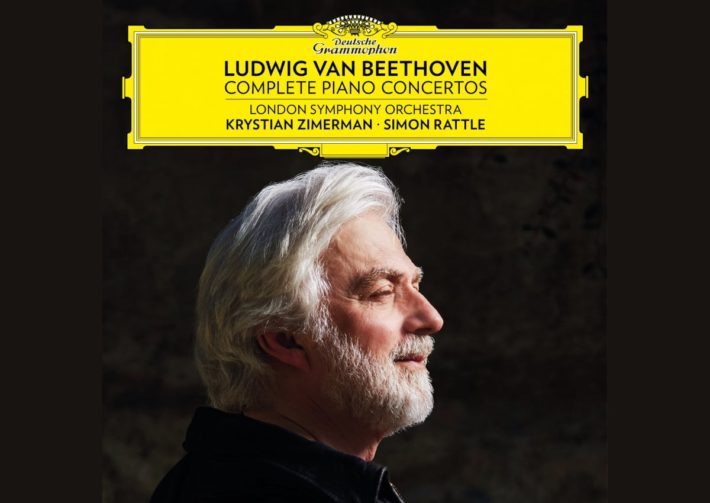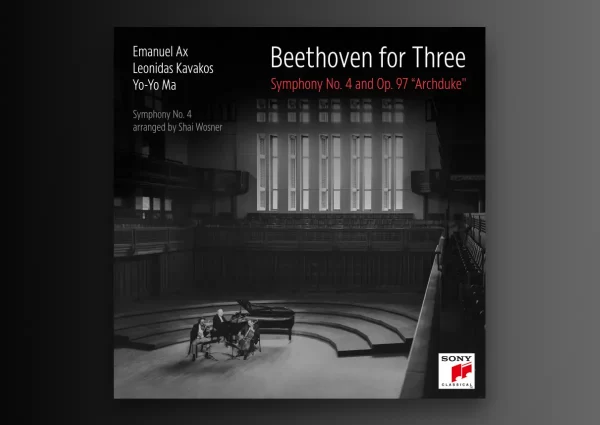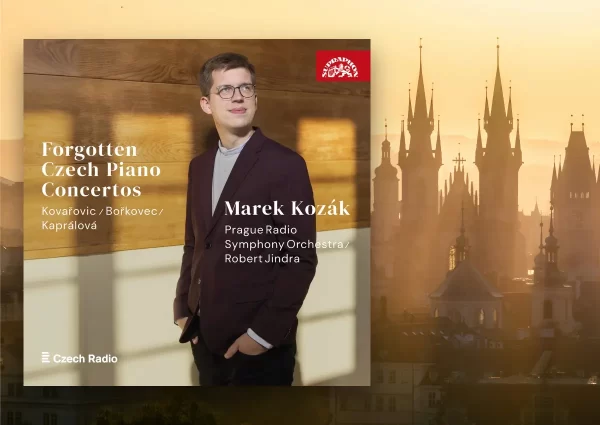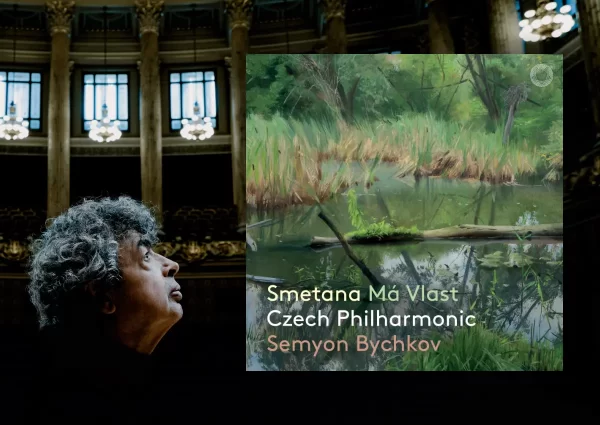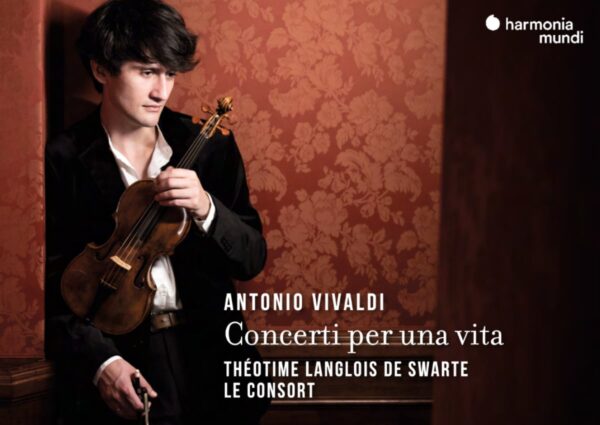Krystian Zimerman’s revisitation of the complete Beethoven concertos is as much a bold musical endeavor as it is an interesting product of the pandemic: in this live-streamed presentation, there is no audience and the LSO’s orchestra members are socially distanced. We are in for an interesting listen: how do these adjustments, along with a gap of nearly three decades (from his initial recording with the Vienna Philharmonic), play into this new recording?
As for the earlier concertos, the C major is quite nice. Rattle’s interpretation tastefully reflects the Early Beethovenian style. The pianist’s approach is similar as he glides effortlessly through the runs. Sometimes, the passages are a little too airborne, evaporating before we can experience them. (I prefer the older version in this regard for its added innocent charm and coyness). The much-needed fun and jubilation do appear in the Ronda, however.
The Allegro Moderato of the Fourth Concerto is all about the interplay between subtlety and nobility. The ensemble’s interludes portray this most successfully. The winds and high strings deliver neat and well-articulated phrases; the low strings, on the other hand, provide power and vibrancy in the more assertive moments. Zimerman’s performance plays more to the work’s nuances – the deceptively tricky opening line is a good example. The chords are well-calibrated and the ending phrased very much like a question which the orchestra seeks to answer. The intricate passages are again infused with an airborne quality, but need more substance. In its absence, there is an occasional feeling of detachment.
Related Classical Music Reviews
- Review: Beethoven – Complete Piano Concertos – Bavouzet, Swedish Chamber Orchestra
- Review: Beethoven – Piano Concerto No. 2 and 5 – Bezuidenhout, Heras-Casado
- Review: Beethoven – Complete Symphonies – Vienna Philharmonic Orchestra – Nelsons
The Rondo of the Fourth, ebullient and exciting, shows attention paid to some lovely details; listen for moments of conversation between piano and a solo cello in 0:16-0:24, which come out even better than in the first recording. The newer cycle does not have some of the more “raw” elements, such as the blaring brass or thunderous low strings; what we have in its place, however, is polished and sophisticated.
The newer iteration of the “Emperor” Concerto shows a well-blended and balanced orchestral sound. The first chord alone is actually a pretty good indicator of this, as it features the ensemble in tutti. The more even distribution across all instruments gives off a resplendence, whereas the older recording puts more weight on the upper strings and winds. As for the newer stylistic interpretation, though, it’s a bit lackluster. The grandeur of the opening is paramount to setting the tone for the entire work. I felt that the pianist could have done more with sound and tempo management to achieve this. The approach pales in comparison to the same section in the first cycle: here, scintillating runs, emphatic phrases, and assured chords reveal the decisive character. The LSO’s orchestral interludes show a more intricate side of Beethoven’s orchestral writing. I liked how the different lines and textures are layered clearly so that we can hear all the moving parts. The horn solo at (2:29-2:44), however, definitely needs to come out more and rushes ahead perceptibly toward the end.
The Adagio is one of Beethoven’s finest slow movements of all the concertos – and it can be a benchmark for a pianist’s artistry. Zimerman does not disappoint in this regard with some beautiful playing. By pairing a warm sound quality with a seamless progression of phrases, he moves the lines in an organic yet still highly expressive fashion. With the Adagio’s naturally slower pace, a performance can fall into the trap of formlessness; the pianist makes some wise choices to prevent this and push the momentum of the climactic sections forward. The only issue here is that the integration between soloist and ensemble is somewhat rough around the edges – in some places, entrances are not quite synchronized.
The sound engineering brings out the performer’s clarity of articulation and the instrument’s silvery tone. For me, the socially distanced musicians and absence of the audience did not impact the performance at all negatively; in fact, it seemed to give the sound more a chance to waft through the space. Zimerman’s first cycle sets an almost impossibly high bar that this new one doesn’t quite surpass. That said, there are still moments of fine musicality to savor, making this new set worth the listen.

Beethoven – Complete Piano Concertos (1-5)
Krystian Zimerman – Piano
London Symphony Orchestra
Sir Simon Rattle – Conductor
Deutsche Grammophon, CD 4839971
Beethoven Piano Concertos – Recommended Comparisons
Read more classical music reviews or visit The Classic Review Amazon store
Follow Us and Comment:
Get our periodic classical music newsletter with our recent reviews, news and beginners guides.
We respect your privacy.

